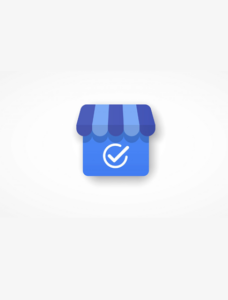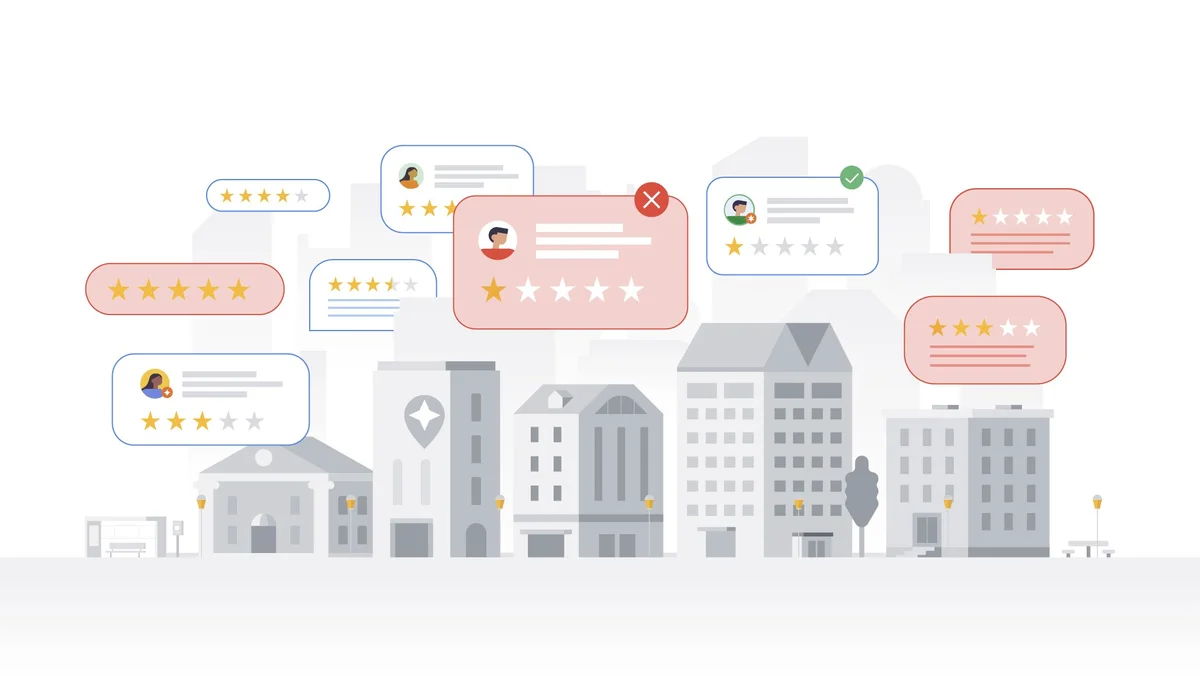
- Red Search
- Resources
- Can Google Detect Fake Reviews
Can Google Detect Fake Reviews?
-
 Daniel Law
Daniel Law
Google uses multiple systems that analyse Google reviews and review patterns, determine unusual spikes and trends in activity, and flag inappropriate language or reviews coming from a single IP or multiple IP addresses.
Aside from advanced algorithms, the search engine now leverages AI, machine learning, and natural language processing (NLP) to maintain strict review policies on top of the millions of reviews per day.
By maintaining strict review policies, Google displays only authentic feedback and promotes transparency and trust in your business. In most cases, do not actively participate in posting fake reviews. Hence, you must detect them as early as possible and maintain compliance to protect your online brand reputation.
Let’s dive deep into how Google detects fake reviews and how they seriously put your business at risk.
Can Google Detect Fake Reviews & How It Does So
Google can detect fake reviews using advanced AI and machine learning tools, algorithms, and human expertise that examine several signals and patterns. This allows Google to remove fraud and display only authentic and genuine customer reviews.
Fake reviews can cause lasting or permanent damage to your reputation, customer trust, and online visibility or search engine rankings. Not only will they lead to deleted reviews and Google Business Profile suspensions, but these restrictions can snowball and cause a drop in leads and revenue.
Protect your business from these risks by prioritising genuine customer engagements, implementing ethical review practices that follow Google’s guidelines, and establishing a fully transparent feedback system.
The Rise of Fake Reviews

In 2023, Google received roughly 20 million daily reviews and user contributions on Maps and Search, including user reviews and review photos. Ensuring user-generated information remains accurate and relevant means Google had to use a combination of advanced technologies and skilled operators, collaborating regularly to fight bad actors.
Google’s automated systems and human review teams deleted over 200 million photos and 7 million videos from 115 million user reviews in 2022, a 20% increase from 2021.
In 2023, the search giant blocked more than 170 million fake reviews, a significant 45% increase since 2022. Other detected contents include:
- More than a 14 million increase in policy-violating videos
- Over 2 million attempts of fraudulent business profile claims being rejected for violating enhanced security protocols
Local businesses struggling to combat fake reviews that do not incorporate actual experiences benefitted from the crackdown. It allowed them to clear out fraudulent reviews and display genuine customer opinions with relevant images/videos.
The Consequences of Getting Caught
Reviews and ratings effectively help customers choose a brand for their needs, underscoring the importance of high-quality and authentic reviews.
That said, businesses that violate Google’s Fake Engagement policy and other prohibited content will be restricted should Google determine violative activity on their business profile.
Examples of restrictions include:
- Business Profile restricted from receiving new reviews or ratings for a certain period
- Business Profile’s existing reviews will be unpublished for a certain period
- Business Profile will display a review deletion warning to inform consumers that fake reviews have been removed.
Nonetheless, Google will inform your business via email if they find violations and will plan to apply a restriction to your Business Profile. You can submit an appeal if you believe Google incorrectly evaluated your profile and has applied restrictions.
The Role of Reviews in Local SEO
Local Map Pack
User reviews reflected in Google Maps and your Google Business Profile are the second most important driving factors for ranking in the local map packs.
Moreover, highlighting and actively responding to customer reviews can boost your listing’s presence and improve its overall organic exposure and reach.
Search Engines Trust Consumers More than Websites
Customer engagement and high-quality reviews provide richer organic signals to determine a website’s performance and ranking. Google values high-authority backlinks, posting photos in their reviews, and engaging with content.
Excellent Reviews = More Clicks
Customers trust reviews as much as word-of-mouth. If someone finds one—or two-star reviews on your listing, they’ll most likely skip them and look for the closest competitor with slightly better reviews.
There’s also a balance between quality and quantity of reviews. Businesses with significantly more product reviews ranging from 3 to 5 stars are expected to perform better than businesses with significantly fewer reviews at 4 to 5 stars.
How Google Detects Fake Reviews (The Science Behind It)
Automated Detection Algorithms
Google recently launched its machine learning algorithm to identify questionable user reviews faster. The algorithm analyses long-term signals daily and spots sudden changes in trends (sudden spikes of 1-star or 5-star reviews).
The algorithm is said to help Google take down 45% more fake reviews than the previous year.
Natural Language Processing (NLP)
Google introduced its first NLP model with BERT, short for Bidirectional Encoder Representations from Transformers—a neural network with language understanding.
Today, NLP techniques can be used to analyse the context of reviews and identify suspicious patterns otherwise indicating fake reviews.
Signs of a Fake Review (And How Google Flags Them)
Repetitive Language Patterns
Overusing common and obvious phrases such as “best shoes ever” or “best service in town” in multiple reviews is a telltale sign of a fake review. Using generic language like “great service” lacks detail and provides very limited value to prospects which can also be seen as a red flag.
Suspicious Review Timelines
Posting multiple 5-star reviews in rapid succession may indicate spammy behaviour. Similarly, if a single reviewer posts reviews for several businesses and services all at once, Google may identify that user as ingenious and take relevant action.
Inconsistencies in User Profiles
Fake reviews may come from accounts without a profile picture or using anonymous names. Be careful of reviews that provide no value and do not provide any genuine information about their experience.
What Happens If Google Catches Your Business Using Fake Reviews?
Should Google determine that a business has violated their Fake Engagement policy, the business will receive an email indicating the plan to apply a restriction. These restrictions could include not being able to receive new reviews, unpublishing existing reviews, or removing fake reviews altogether.
In addition, the business may also be restricted from using its Google Business Profile account, which can result in a listing suspension.
How to Protect Your Business From Fake Review Detection
Here’s how you can effectively safeguard your business from getting penalised over fake reviews:
Promote Authentic Reviews
Build trust and authenticity. That’s why engaging with consumers and encouraging customers to provide genuine feedback is crucial. People aren’t stupid. We can all recognise what is a real review telling a real experience and what is not.
Practical Tips for Encouraging Authentic Reviews
- Keep customers happy by delivering exceptional customer experience.
- Promote transparency on how customer reviews help inform others about your products.
- Highlight existing reviews on your social media or website to inspire others to leave genuine reviews.
- Respond to reviews in an authentic and genuine manner, both negative and positive.
Request Reviews the Right Way
Google frowns upon incentivising reviews and aggressive solicitation tactics. Request reviews the ethical way by:
- Sending a follow-up email after a purchase.
- Displaying in-store QR codes pointing to your Google review page.
- Including a personalised review request in the product box or packaging, addressing the customer’s name and shopping experience..
What to Do If Google Flags Your Reviews as Fake (And How to Respond)
It is still possible to get flagged over fake reviews despite your efforts to keep reviews genuine and authentic. When this happens, you must act promptly and protect your business’s online reputation.
How to Appeal a Review Deletion
If you think genuine user reviews have been erroneously deleted, you can appeal to Google using your Google Business Profile.
- Sign in to Your Google Business Profile: Go to Google Business Profile Manager and log in with your credentials.
- Locate the Review in Question: Navigate to the “Reviews” tab and find the review flagged or removed.
- Submit a Request for Review: Click the three-dot menu next to the review and select “Request Review” or “Flag as Inappropriate.”
- Provide Evidence: Use the comments section to provide clear evidence supporting the review’s authenticity. This could include receipts, proof of customer interactions, or screenshots of relevant conversations.
- Follow-Up: Google may take several days to review your appeal. If necessary, follow up with Google Support.
Common Errors Google Makes When Flagging Reviews
- Sudden Spike in Reviews: If you recently conducted a big sale or event that resulted in an influx of product reviews, Google may flag this as suspicious.
- Repetitive Language or Phrases: Customers may sometimes use common adjectives when reviewing your product and use closely similar wording across multiple reviews.
- IP Address Conflicts: Reviews posted quickly from a single IP address may be flagged as suspicious.
FAQs on Google Fake Reviews
How does Google know if a review is fake?
Google uses a combination of AI, machine learning, NLP, and human expertise to scan unusual review patterns and determine fake ones from authentic reviews. Common patterns include unusual spikes in activity, multiple repetitive reviews from the same IP address, and using very similar language among different reviews.
How do I remove a fake review from my Google Business Profile?
You can submit an appeal if you believe Google incorrectly evaluated your profile and applied restrictions. We highly advise attaching evidence, like an official purchase receipt or customer correspondence, to prove the legitimacy of the review.
Can fake reviews affect my SEO?
Yes, and in more ways than one. Fake reviews harm your SEO as Google may restrict your business profile access, reducing your overall visibility in search results, or even suspend it altogether, depending on the severity of the violation.
What happens if I get caught using fake reviews?
Google may unpublish or remove all flagged reviews and suspend your access to the Google Business Profile. More severe violations may reduce SEO rankings or delist your page from search results.
How can I encourage customers to leave genuine reviews?
You can encourage genuine reviews by sending post-purchase emails, displaying in-store QR codes pointing to the review link, or including a simple thank-you note with a kind request for a review on the product box or packaging.
Keep the review process simple and convenient, so it should take no more than 3-5 minutes of your customers’ time. Showing how their short reviews significantly improve your business may also boost engagement and build trust with your customers by letting them know you’re listening to their opinions and suggestions.
Written by
Daniel Law
Daniel Law is the SEO Director at Red Search, a specialist SEO agency based in Sydney, Australia. With over 15 years of experience in the industry, Daniel has a wealth of knowledge and expertise in search engine optimisation (SEO). He is passionate about helping businesses achieve success through effective and sustainable SEO strategies and is dedicated to staying up to date on the latest industry trends and best practices.





